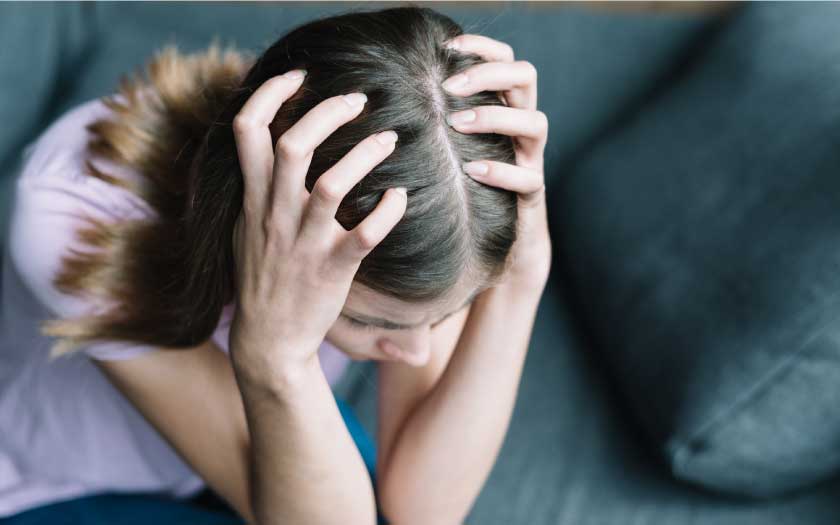If you’re trying for a baby and it’s not happening for you, you might, quite naturally, feel stressed out about it. Still, did you know that stress affects the functioning of the hypothalamus — the gland in the brain that regulates the hormones that tell your ovaries to release eggs, causing you to ovulate later in your cycle or not at all?
So, if you’re stressed, and at the same time trying to time your actions in bed to coincide with your ovulation period, you may not succeed.
A difference between constant and sudden stress
It’s important to differentiate between constant and sudden stress. If your stress level is high but fairly consistent, your body will likely acclimate to it and you’ll probably still ovulate each cycle. It’s sudden stress — such as an accident or a death in the family — that can throw your cycle off and interfere with ovulation.
Of course, this is not the case for all women. Some women find that even a trip out of town can delay ovulation. Others have found that a severely traumatic incident did not impact their cycle much.
…and then, there’s the happy kind of stress
It’s also important to remember that stress isn’t only a reaction to something negative. For example, have you ever felt stress following promotion and the sudden need to take on new responsibilities? It’s a great feeling, yet it’s stressful at the same. This kind of ‘positive’ stress can also affect your cycle, causing you to ovulate later or not at all. Brides often report strange cycles because they’re happily stressed about their weddings.
Bodily clues
If you’re trying to get pregnant and you’re under stress, your cervical fluid may give you a warning that something’s amiss. Rather than noticing increasing cervical fluid wetness as you approach ovulation, you might find patches of wetness interspersed with dry days. It’s as if your body is trying to ovulate, but the stress continues to delay it.
However, while stress may impact when you ovulate, there is still a chance of pregnancy, as long as you know how to identify when ovulation is about to occur by charting your cervical fluid.
You’ll be able to confirm when you have indeed ovulated by tracking your basal body temperature. You should see a sustained rise about a day after ovulation, lasting about 12 to 16 days.
The delayed ovulation simply lengthens your entire cycle. It doesn’t shorten the luteal phase — typically lasting 12 to 16 days after ovulation to the start of your next menstrual period.
Stress and Male Infertility
According to the American Society for Reproductive Medicine, in around 40% of infertile couples and their respective male partners, stress is the sole cause or contributing cause of infertility.
Past research has associated stress with many health problems, including heart disease, asthma, obesity, and depression. One study even suggests that stress can reduce sperm and semen quality, which could have implications for male fertility.
One of the main causes of male infertility is sperm abnormalities, including low sperm production or misshapen or immobile sperm. Medical conditions — such as undescended testicles or ejaculation problems — can lead to sperm abnormalities, as well as health and lifestyle factors.


